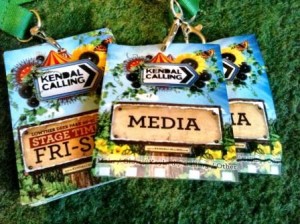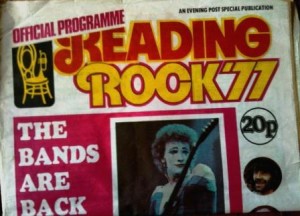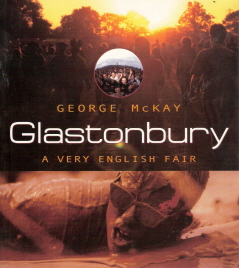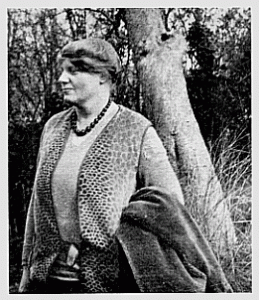
I was approached by MSN recently to comment on some interesting research they had commissioned about the pop festival, and the behaviour of festival-goers, in Britain. It’s the time of the year—various journalists had also been in touch or pieces they were writing about the festival season. Here are some of my comments to one of them, which you can quote from if you wish (please link to http://georgemckay.org if you use my words). Second, I include an extract from, and the film of, a keynote lecture I gave at a conference last year on festivals. And here you can find more about my festival-related research, or click on ‘festival’ in the tag cloud, there are numerous posts about festival culture (watch out for interesting things happening with Cheltenham Festivals and with London Jazz Festival too, as part of my AHRC Fellowship, and a new book, an academic collection I’m editing for Bloomsbury, The Pop Festival, in a summer or two).
____________________________________________________________________________
What are the latest trends in musical festival attendance? Do more people go to festivals than in the 70’s, 80’s and 90’s? are there more musical festivals around Europe than there used to be?

I must say I’ve been surprised by the sustained success of pop festivals over the past 2 or 3 decades. If we go to them to see bands, to experience live music, well there are more comfortable, safer, cleaner venues, that are easier to get to and get home from, in most cities, so why would you trek to the countryside, loaded down with tent, sleeping bag, and so on. So the festival must also offer us some other pleasure or dream. But the success, and let’s face it, expansion of the pop festival during these decades is also a model that’s encouraged by the music industry: with music sales dropping it’s the live music circuit, with its merchandising points of sales, that offers a profitable line, and festivals are the compressed collective version of the live circuit. It’s true that last year, in both the UK and Europe, there were some festivals in crisis, and even some cancelled because of poor sales–this caused people to talk about the bursting of the bubble, even the death of the pop festival. More realistically, the market was saturated: in the UK in particular there is a fairly short festival season, sometimes called ‘summer’, though we’ve not seen so many of those in the past few years. Summer means possibly 12-15 weekends available to squeeze in every single festival in the country—in fact, the unreliability of the weather does mean Brits go abroad to mainland Europe for festivals now—Spain, Croatia, for instance. But its death is exaggerated.
Why do people still go to festivals in the age of almost free music downloading and streaming, virtual social media and a modern way of life which makes it much harder to get a way and get ‘offline’ for two or three whole days? What are people looking for in festivals? What are their social functions?
 As I say, the death of the pop festival is exaggerated: I always look at Glastonbury, and how its tickets sell out in a mad few hours each year, and this happens months before any headliner acts are confirmed. People buy tickets when they don’t even know who is going to play. And the attractions have got to include some of the following, which are precisely not about the actual music:
As I say, the death of the pop festival is exaggerated: I always look at Glastonbury, and how its tickets sell out in a mad few hours each year, and this happens months before any headliner acts are confirmed. People buy tickets when they don’t even know who is going to play. And the attractions have got to include some of the following, which are precisely not about the actual music:
- the countryside and the genius loci of that place, with all its mystical swirl, Arthurian legend, the Tor in the distance, the grail legend. These are about the experience or invention of a different kind of Englishness
- the social event, which is a mass happening where the temporary community of the crowd, living in a constructed canvas village, comes together in a rejection of the atomising individualism of digital culture. OK we have our mobiles at Glastonbury, but we tend to leave the macbook behind!
- and yes again, us: we the crowd are the main event, not the bands on stage. I remember a few years ago at Glastonbury seeing a major US band coming on stage and the bassist taking a camera from his pocket to photograph *us*, and I thought, yes that’s right, we are the main attraction. It’s the confirmation of carnival theory’s blurring of the distinction between participant and observer in action
- the idealism of Glastonbury. In spite of everything, there is still a certain level of campaigning and fundraising for good causes
- the breaking of convention, which means a kind of temporary liberation for the weekend, a mild embracing of hedonism and indulgence.
Are festivals becoming more commercialized and less ideological and community-orientated?
Arguably many activities and cultural expressions are less overtly ideological than, say, even 30 years ago, so why would festivals be any different? OK we don’t have a truly radical and edgy free festival movement any longer (where a festival would be thrown for anyone who turned up on fields squatted for the occasion, and there was a related new traveller culture). But I don’t entirely buy the post-ideology arguments. Festivals in the green countryside are often engaged directly with issues of land, the environment, an implicit or explicit green politics. I agree it’s a bit boring when the same headliners appear at different festivals just because their managements have a deal with national festival organisers, yes that’s pretty dull, and does signal a commercial rather than utopian imperative. But I prefer to think of the festival as still containing the possibility of offering a glimpse of utopia even among the noise, dirt, commerce, sometimes mud, and crowds. Am I naive, nostalgic? That itself is part of festival belief!
_____________________________________________________________________________
[From ‘Festival, Industry, Place, Community’ keynote lecture, 2012] … As we have seen with founding Beaulieu Jazz Festival in the New Forest in Hampshire from the 1950s, I think there is more to festival place than the upward-striving flagpole—heavenly verticality—or the colourful big top—hippies saying: ‘you’re never too old for a happy childhood’. Indeed when Lord Montagu got involved in the impressive billing of the 1963 Manchester Jazz Festival, the importance of the genius loci of Beaulieu and the New Forest can be glimpsed: when offered the industrial urban north of Manchester instead of the bucolic New Forest, audiences, ironically prompted by the presence in publicity of Montagu connecting this festival with the earlier Beaulieu ones, refused and the event flopped.
 And I think place is one of the key reasons why, say, Glastonbury Festival endures, and indeed thrives. (Not a festival of the 1960s at all but really of the 1980s, the Thatcher years, of course.) It’s the genius loci, the spirit of the place, that attracts or resonates. The early twentieth century occultist, writer and ethical vegetarian—yes! What a combo—Dion Fortune centred most of her energies around Glastonbury, and was responsible for coining the phrase ‘Avalonians’ to describe the collection of like-minded souls, eccentrics, believers who congregated there looking for spiritual fulfilment. From Arimathea (and where is / was that? No-where—utopia) to Arthur and Avalon—what was it Fortune said of Glastonbury: ‘the veil is thin here’. When I interviewed him for my 2000 book, Glastonbury: A Very English Fair, the senior police officer responsible for security at the festival said to me: ‘You’ve got to remember, it is the Vale of Avalon’ (Veil / vale.) When I sent him the interview transcription he asked me to change that line, because, although it was what he felt, it also made him sound a bit hippy-dippy. I changed it. (BTW, when the festival is on, around Glastonbury, ironically, the veil thickens.)
And I think place is one of the key reasons why, say, Glastonbury Festival endures, and indeed thrives. (Not a festival of the 1960s at all but really of the 1980s, the Thatcher years, of course.) It’s the genius loci, the spirit of the place, that attracts or resonates. The early twentieth century occultist, writer and ethical vegetarian—yes! What a combo—Dion Fortune centred most of her energies around Glastonbury, and was responsible for coining the phrase ‘Avalonians’ to describe the collection of like-minded souls, eccentrics, believers who congregated there looking for spiritual fulfilment. From Arimathea (and where is / was that? No-where—utopia) to Arthur and Avalon—what was it Fortune said of Glastonbury: ‘the veil is thin here’. When I interviewed him for my 2000 book, Glastonbury: A Very English Fair, the senior police officer responsible for security at the festival said to me: ‘You’ve got to remember, it is the Vale of Avalon’ (Veil / vale.) When I sent him the interview transcription he asked me to change that line, because, although it was what he felt, it also made him sound a bit hippy-dippy. I changed it. (BTW, when the festival is on, around Glastonbury, ironically, the veil thickens.)
But other festival sites, land plots for the temporary event or community, include:
- some rural events spaces, such as country showgrounds more commonly peopled by horticultural events (the early Bath Blues Festivals that inspired Michael Eavis, at Shepton Mallett),
- or underused horse-race courses (Plumpton 1970)
- derelict or neglected airfields (Watchfield People’s Free Festival 1975—a redundant military site donated by the government, by the way; Blackbushe Aerodrome 1978 when Dylan played his first UK gig for years; Phoenix Festival Long Marston, mid 1990s),
- on an old rubbish tip (the first Reading, 1971. No jokes, that’s not fair),
- industrial waste land (Bickershawe Lancs 1972, with Grateful Dead)
- blasted heathland (Krumlin, Yorkshire Moors, 1970: people are treated for exposure in hail and sleet. In August. Ginger Baker offers to pay for free on Sunday but there’s no one left),
- out-of-season holiday camps,
- and from the autonomous political perspective: squatted or land-grabbed commons (Castlemorton Common 1992, the culmination of the free rave / festival revival crossover).
